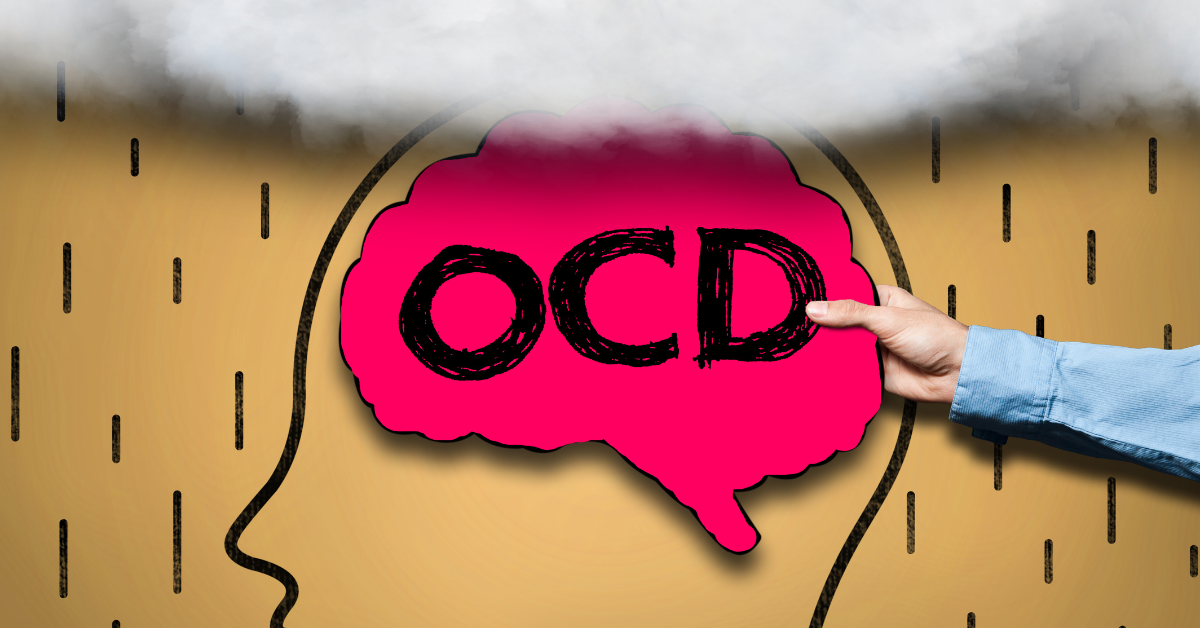Impulse Control Disorder Treatment: Unveiling the Struggle and Seeking Balance
Impulse control disorders can profoundly affect both individuals and their loved ones. These disorders often result in a range of unexpected consequences and can exacerbate co-occurring mental health and substance use issues. Luckily, impulsivity treatment options are available for all types of impulse control disorders, offering significant improvements in patients’ quality of life. If you’re interested in learning more about impulse control disorder treatment offered by Legacy Healing Center, this is the perfect place to start.
What Are Classified As Impulse Control Problems?
Impulse control disorder (ICD) is a class of mental health disorders that are all characterized by some form of impulsivity. This impulsivity is a failure or inability to resist temptations, urges, or impulses.
The different types of ICDs are defined by a specific impulse that the sufferer has difficulty resisting. One example is the inability to keep one’s thoughts to oneself, no matter how inappropriate they might be for the situation.
The impulse control disorder class is something of a catchall category and includes many behaviors commonly referred to as “addictions.” For example, sex addiction, internet addiction, and shopping addiction are all classified as impulse control disorders. Knowing the ins and outs of this condition makes it easier to find the proper treatment for impulse control disorder and leads to more effective results in the long run.
Symptoms To Analyze Before Impulse Control Treatment
The symptoms of this condition will vary depending on which type of ICD the patient suffers from. Understanding the symptoms of ICDs can help to establish the proper plan for impulse control disorder treatment. Some symptoms commonly seen with most or all ICDs include:
- Repetitive or compulsive engagement in behaviors despite experiencing negative consequences from engaging in them
- Decreased control over problematic behavior or behaviors
- An urge to engage in problematic behavior that may feel impossible to control
- Feelings of irritability, anxiety, or depression when the individual feels an urge but does not engage in a behavior
- Feelings of pleasure or relief when the individual participates in the behavior or shortly after
Some other symptoms of impulse control disorders may be more related to the consequences of the ICD rather than a direct symptom of the disease itself. Examples of such symptoms include:
- Fear of abandonment
- Fear of being unable to control oneself
- Avoiding situations where impulse control might be problematic
- Obsessive thought patterns
- Compulsive thought patterns
- Feelings of low self-worth
- Emotional detachment
- Poor social skills
- Difficulty forging and maintaining meaningful relationships
Recognizing these symptoms is the first step in addressing impulse control disorders. Individuals and their loved ones can seek timely and effective mental health treatment by understanding how these behaviors manifest. Early intervention helps manage the condition and minimizes the impact on relationships, mental health, and overall quality of life.
How ICD Can Present Itself in Sufferers
There are many impulse control disorders, and new disorders are regularly added to the category. Each disorder is primarily distinguished by what impulse the sufferer has to resist.
According to the Cleveland Clinic, the following conditions are classified as impulse control disorders, as outlined by the American Psychiatric Association’s Diagnostic and Statistical Manual of Mental Disorders (DSM-5)¹:
- Kleptomania: An overpowering urge to steal or shoplift for the pure sake of gratification. This condition affects about 0.6% of the general U.S. population. People with kleptomania know stealing is wrong but find it impossible to resist the impulse.
- Pyromania: An urge to deliberately start, grow, and watch fires. Pyromania is the rarest type of impulse control disorder, with one study showing that only 3% of people imprisoned for arson specifically met the criteria for pyromania.
- Intermittent Explosive Disorder: Repeatedly experiencing severe, aggressive episodes that are significantly out of proportion to the cause. This condition affects about 2.7% of the U.S. population.
- Compulsive Shopping/Shopping Addiction: An urge to shop even for items that are unnecessary and cannot be afforded.
- Internet Addiction: Excessive internet use to the point where it damages the sufferer’s life.
- Sexual Compulsion or Sex Addiction: Frequently engaging in sexual acts or thoughts, often without regard for the consequences.
- Oppositional Defiant Disorder (ODD): A continuing pattern of angry, negative, defiant, disobedient, and hostile behaviors. This condition affects 3.3% of children and adolescents in the U.S.
- Conduct Disorder: A lengthy pattern of antisocial behaviors, including theft, lies, physical violence, property destruction, and rule-breaking. This condition affects approximately 4% of children and adolescents in the U.S.
Impulse control disorders tend to affect people assigned male at birth (AMAB) more often than people assigned female at birth (AFAB).
- Kleptomania: An urge to steal or shoplift for the pure sake of gratification
- Pyromania: An urge to deliberately start, grow, and watch fires
- Intermittent explosive disorder: Repeatedly experience severe, aggressive episodes that are significantly out of proportion to the cause
- Compulsive shopping/shopping addiction: Urge to shop even for items that are unnecessary and cannot be afforded
- Internet addiction: Excessive internet use to the point where it damages the sufferer’s life
- Sexual compulsion or sex addiction: Frequently engaging in sexual acts or thoughts, often without regard for the consequences
- Oppositional defiant disorder: A pattern of angry, negative, defiant, disobedient, and hostile behaviors
- Conduct disorder: A lengthy pattern of antisocial behaviors, including theft, lies, physical violence, property destruction, and rule-breaking
Understanding the various types of impulse control disorders is crucial for recognizing and addressing their profound impacts on individuals and society. With ongoing research and increased awareness, early diagnosis and effective impulse control disorder treatment can help manage these disorders. By seeking appropriate help, those affected can regain control and improve their quality of life, ensuring a healthier future for themselves and their loved ones.
Treatment for Impulse Control Disorder
Impulse control disorders are not as well-understood as many other mental health conditions; as a result, the treatment options are somewhat more limited. Additionally, many impulse control disorders, such as internet addiction and shopping addiction, have only begun to appear in recent years.
There is no cure for impulse control disorder; however, options for your impulse control treatment plan can dramatically improve the quality of ICD sufferers’ lives.
The most effective treatment options for impulse control disorder combine medications that help with symptoms and addiction therapies that help patients understand themselves and change their behavior.
An Effective Impulse Control Care Plan for a Healthier Life
By its very nature, impulse control disorder can be complicated for people to control, but some techniques can help people with ICD resist impulses.
Psychiatric mental health nurse practitioner (PMHNP) Valerie Puffenberger provides the following strategies to help manage impulse control disorder:
- Cognitive behavioral therapy: This form of impulse control therapy can help individuals identify and challenge irrational thoughts and beliefs that contribute to impulsive behaviors.
- Mindfulness and meditation: Mindfulness can help increase self-awareness and improve impulse management.
- Support network: Building a support network of understanding family and friends will help keep you accountable and motivated.
Managing the condition can be challenging, but with the proper impulse control disorder treatment, patients can learn to resist their impulses. By utilizing these methods, individuals with impulse control disorders can enhance their self-control, leading to a healthier and more fulfilling life.
The Importance of Seeking Professional Help for Impulse Control Disorders
Seeking professional help is essential for improving impulse control disorders, as these conditions often stem from complex psychological, behavioral, and neurological factors. Without proper intervention, impulse control disorders can lead to severe consequences, including strained relationships, financial difficulties, and deteriorating mental health. A professional evaluation can uncover the root causes of the behavior, assess co-occurring mental health conditions, and determine the most effective treatment plan.
Professional treatment programs, like those offered at Legacy Healing Center, provide a structured and supportive environment where individuals can explore the underlying triggers of their impulsivity. Therapy sessions focus on identifying harmful thought patterns, developing healthier coping mechanisms, and improving self-awareness. Additionally, treatment often includes strategies to address co-occurring conditions, such as anxiety, depression, or substance abuse, ensuring a comprehensive approach to recovery.
Finding help is a courageous step that opens the door to a healthier and more fulfilling life. With the proper treatment and a strong support system, individuals struggling with impulse control disorders can regain control of their actions, rebuild meaningful relationships, and reduce the negative impacts of their behaviors. Professional guidance fosters lasting change and empowers individuals to achieve personal growth and stability.
The Role of Co-Occurring Disorders in Impulse Control Issues
Impulse control disorders often coexist with other mental health conditions or substance use disorders, creating a complex web of challenges for those affected. These co-occurring disorders can intensify impulsive behaviors, making it harder for individuals to break free from harmful patterns. For example, individuals with kleptomania may also have other conditions, such as depression or anxiety, which can further complicate their ability to manage impulses.2 Conditions like anxiety or depression may fuel impulsive actions as a form of temporary relief, while substance use may lower inhibitions, worsening control over impulses. Identifying and addressing these interconnected issues is critical for effective treatment.
Common co-occurring disorders associated with impulse control issues include:
- Anxiety disorders: Heightened stress and worry can trigger impulsive behaviors as coping mechanisms.
- Depression: Feelings of sadness or hopelessness may drive impulsive actions to achieve momentary relief or distraction.
- Substance use disorders: Alcohol or drug use can lower self-control and increase impulsivity.
- Obsessive-compulsive disorder (OCD): Intrusive thoughts and compulsions can overlap with impulsive behaviors.
- Bipolar disorder: Mood swings and manic episodes may lead to periods of heightened impulsivity.
Treating co-occurring disorders alongside impulse control disorders requires an integrated approach. Addressing the root causes and providing patients with the tools they need to manage their impulses and co-occurring conditions makes a path to stability and improved quality of life possible. Our facility offers life-changing addiction treatment programs.
Get Help From Our Mental Health Treatment Team Today
Are you or a loved one struggling with this condition and seeking effective impulse control disorder treatment? The teams at our rehab and mental health facilities nationwide are here to help. Reach out to your area’s regional Legacy Healing Center today to benefit from expert care. Interested in learning more about this condition or other ones that we treat, such as substance abuse, addiction, or other mental health concerns? Explore our treatment articles for more information on how we can support your journey to recovery.
Sources:
- Impulse control disorders. Cleveland Clinic. Last reviewed August 7, 2023. Accessed January 6, 2025. https://my.clevelandclinic.org/health/diseases/25175-impulse-control-disorders.
- American Psychiatric Association . Kleptomania. Psychiatry.org – Kleptomania. June 25, 2019. Accessed January 6, 2025. https://www.psychiatry.org/News-room/APA-Blogs/Kleptomania.




